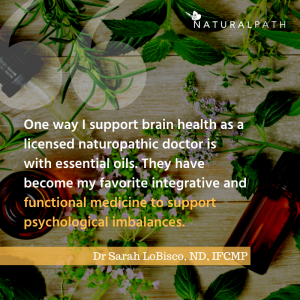The healthcare, nutrition, diet, and fitness industries are booming.(1, 2, 3, 4, 5, 6, 7, 8, 9) Global health care expenditure is expected to reach 10.059 trillion dollars by 2022. The fitness industry alone is estimated to have a market size of 87.23 billion, and the diet and weight loss industries rake in about $72 billion per year.
Health is big business
With all this money changing hands and the United States spending about 18% of its Gross Domestic Product on healthcare, you’d think we’d have a nation of very healthy people.
We don’t.
The U.S. world ranking for wellness indicators are not only pathetically low, but dismal. For one of the richest nations, life expectancy has been on a continual downward trend while the number of people living with multiple chronic diseases has been rising.(10, 11, 12, 13, 14, 15, 16)
In comparison to most other developed countries, we spend twice the amount on healthcare and that earns us a place in the bottom for life expectancy and infant mortality.(17, 18, 19, 20)
Something is really, really, wrong.
 The literal sad state of a nation
The literal sad state of a nation
One reason that the United States is such an unwell country is that we are using a broken healthcare model. The current approach to placing profits over people and using insurance companies as middlemen, will never reverse disease. Insurance for all is not a solution if it only gives more access to staying stuck in an ineffective system. I discuss this topic more here.
Another major area that I feel is often ignored also contributes substantially to the decline in life expectancy. these areas are mental illness and substance use disorders. This is evident in the rise in opioid addiction and suicide rates increasing at younger and younger ages.(21, 22, 23, 24)
In fact, mental health conditions rank among the most costly health care expenditures(25, 26)yet don’t get the same attention or resources of physical diseases. Furthermore, many are afraid to reach out due to the associated stigma, often not receiving adequate support, or are treated ineffectively.
According to The Substance Abuse and Mental Health Services Administration (SAMHSA) on combined mental and substance use disorders (M/SUD):
M/SUD treatment spending from all public and private sources is expected to total $280.5 billion in 2020, which is an increase from $171.7 billion in 2009. These amounts include the effects of the Affordable Care Act. M/SUD treatment spending growth is likely to slow from recent trends and lag behind growth in all-health spending.
The conventional approach of band aiding any bodily or mood symptom with drugs or the “holistic” viewpoint that the latest dietary or fitness trend is enough to take away people’s inner pain is sorely missing the mark. These surface solutions may be helpful to a certain point, but alone they still leave many suffering in silence and living lives in emotional turmoil.
A Naturopathic Answer to a More Serene Life
My passion for supporting people to have more fulfilling lives has led me to focus more on their emotional and mental health. Although diet and lifestyle are important, they are only two of the many aspects to physical and emotional balance.
One way I support brain health as a licensed naturopathic doctor is with essential oils. They have become my favorite integrative and functional medicine to support psychological imbalances.
In my latest posts on mental health, I go into more detail on how we need more effective and integrative solutions for brain health. This means viewing mental illness not as a character defect, but as a true physiological, functional, and emotional imbalance.
You can learn more about my approach here.
 Sarah LoBisco, ND, IFCMP, is a graduate of the University of Bridgeport’s College of Naturopathic Medicine (UBCNM). She is licensed in Vermont as a naturopathic doctor and has received her certification in functional medicine through the Institute of Functional Medicine (IFM), which is accredited by the Accreditation Council for Continuing Medical Education (ACCME). She holds a Bachelor of Psychology from State University of New York at Geneseo and is also certified in Applied Kinesiology. Dr. LoBisco currently incorporates her training in holistic and conventional medicine through writing, researching, and through her independent consulting work with individuals and for companies regarding supplements, nutraceuticals, essential oils, and medical foods. Dr. LoBisco speaks professionally on integrative medical topics and has several journal publications. “Dr. Sarah” also enjoys continuing to educate and empower her readers and clients through her blogs and social media. Her main blog can be found at dr-lobisco.com.
Sarah LoBisco, ND, IFCMP, is a graduate of the University of Bridgeport’s College of Naturopathic Medicine (UBCNM). She is licensed in Vermont as a naturopathic doctor and has received her certification in functional medicine through the Institute of Functional Medicine (IFM), which is accredited by the Accreditation Council for Continuing Medical Education (ACCME). She holds a Bachelor of Psychology from State University of New York at Geneseo and is also certified in Applied Kinesiology. Dr. LoBisco currently incorporates her training in holistic and conventional medicine through writing, researching, and through her independent consulting work with individuals and for companies regarding supplements, nutraceuticals, essential oils, and medical foods. Dr. LoBisco speaks professionally on integrative medical topics and has several journal publications. “Dr. Sarah” also enjoys continuing to educate and empower her readers and clients through her blogs and social media. Her main blog can be found at dr-lobisco.com.

















